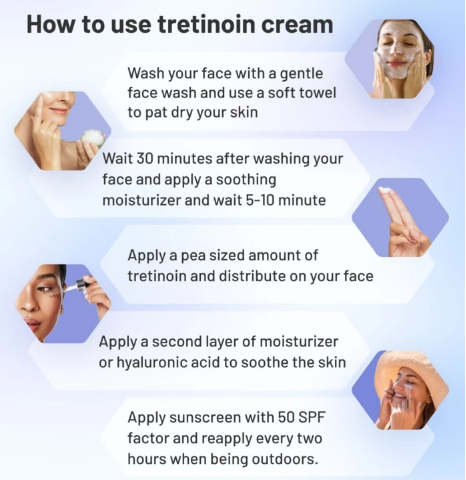Vitamin C in Skin Care has long been celebrated for its numerous health benefits, and its role in skincare is no exception.When it comes to racking up a brighter and further indeed skin tone, Vitamin C stands out as a potent component. This composition explores the wisdom behind Vitamin C and its dramatic goods on skin whitening.

Understanding Skin Pigmentation:
Before delving into the benefits of Vitamin C, it’s essential to understand the factors contributing to uneven skin tone. Skin Saturation is told by melanin, a color accountable for the color of our skin, hair, and eyes. Uneven distribution of melanin can lead to dark spots, hyperpigmentation, and an overall dull color.
Vitamin C and Skin:
Vitamin C acts as an antioxidant, neutralizing free radicals that contribute to skin aging and damage. Also, Vitamin C plays a vital part in checking melanin product. By suppressing the exertion of enzymes involved in melanin conflation, Vitamin C helps help the conformation of dark spots and promotes a more even skin tone.
Antioxidant Protection:
Vitamin C is a full-bodied antioxidant, helping to neutralize free revolutionaries in the skin. Free revolutionaries are unstable motes that can damage skin cells and contribute to aging and environmental pressure.
Collagen Synthesis:
Vitamin C is essential for the synthesis of collagen, a structural protein that provides elasticity and firmness to the skin. Collagen production naturally declines with age, and Vitamin C helps support the skin’s ability to maintain a youthful structure.
Brightening and Even Skin Tone:
Vitamin C inhibits the production of melanin, the pigment responsible for dark spots and hyperpigmentation. By covering melanin conflation, Vitamin C can contribute to a more indeed skin tone and reduce the presence of dark spots.
Sun Damage Protection:
While not a replacement for sunscreen, Vitamin C has been shown to enhance the effectiveness of sunscreens. It helps cover the face from UV damage and may help in freshening and precluding sun- convinced skin aging.
Hydration and Moisture:
Vitamin C can help the skin retain moisture, contributing to a hydrated and plump appearance. This is helpful for individualities with dry or dehydrated skin.
Anti-Inflammatory Properties:
Vitamin C has anti-inflammatory properties that can help soothe irritated skin and reduce redness. Vitamin C in Skin Care may be benefic for individualities with sensitive or lit skin conditions.
Wound Healing:
Due to its role in collagen synthesis and its overall support for skin health, Vitamin C can aid in the healing of wounds, cuts, and minor injuries.
It’s historic to note that the stability and effectiveness of Vitamin C in skincare products can vary. Common derivations of Vitamin C used in skincare phrasings include ascorbic acid, sodium ascorbyl phosphate, and tetrahexyldecyl ascorbate. The attention of Vitamin C in a production, as well as the expression and packaging, can impact its efficacity.
When incorporating Vitamin C into your skincare routine:
- Start with a patch test to ensure your skin tolerates the product.
- Use Vitamin C products consistently for best results.
- Consider applying Vitamin C in the morning to take advantage of its antioxidant properties and to enhance sun protection.
As with any skincare ingredient, individual responses can vary, and consulting with a dermatologist can provide personalized recommendations based on your skin type and concerns.
Brightening Effects:
Regular use of Vitamin C in skincare can result in a visibly brighter complexion.Its capability to lighten hyperpigmentation, fade darkish spots, and indeed out skin tone makes it a popular choice for those seeking radiant and clear skin. Vitamin C also promotes collagen production, enhancing skin elasticity and firmness.
Inhibition of Melanin Production:
Melanin is the color accountable for the color of the skin. Overproduction of melanin can lead to hyperpigmentation, dark taints, and an uneven skin tone. Vitamin C has the capability to inhibit the exertion of enzymes involved in melanin conflation. By doing so, it helps help the conformation of dark spots and promotes a more indeed skin tone.
Reduction of Hyperpigmentation:
Hyperpigmentation can occur due to various factors such as sun exposure, inflammation, and hormonal changes. Vitamin C helps fade existing hyperpigmentation by reducing melanin production and promoting a more uniform distribution of pigment in the skin.
Evening Out Skin Tone:
Uneven skin tone can be a result of sun damage, environmental stressors, and aging. Vitamin C promotes a more consistent skin tone by addressing discoloration and brightening areas that may appear dull.
Enhanced Radiance:
Vitamin C contributes to the skin’s overall radiance by promoting a healthier complexion. Its antioxidant parcels cover the skin from free radical detriment, which can contribute to a dull and tired appearance.
Boosting Collagen Production:
Collagen is a key structural protein that provides firmness and elasticity to the skin. Vitamin C plays a critical part in collagen conflation. By supporting collagen product, Vitamin C helps maintain skin integrity, oil benefits for skin and decision, contributing to a immature and radiant look.
Improving Skin Texture:
Vitamin C can enhance the texture of the skin by promoting cell turnover.This process helps remove dead skin cells, allowing newer and able-bodied skin to crop . The result is smoother and further luminous skin.
Sun Damage Repair:
Exposure to UV radiation can lead to sun damage, including dark spots and uneven pigmentation. Vitamin C has subsisted shown to help repair sun- damaged skin by reducing oxidative stress and advancing mending.It’s earthshaking to note that the effectiveness of Vitamin C in achieving cheering goods can vary among individualities. Additionally, consistent and long-term use of Vitamin C is often recommended to see noticeable improvements in skin tone and radiance.
Choosing the Right Vitamin C Product:
Not all Vitamin C products are created equal. It’s crucial to select a stable and well-formulated product to ensure maximum effectiveness. Look for derivatives like ascorbic acid, sodium ascorbyl phosphate, or tetrahexyldecyl ascorbate for optimal results.
Incorporating Vitamin C into Your Skincare Routine:
Whether in the form of serums, creams, or oils, Vitamin C can be seamlessly integrated into your skincare routine. Start with a patch test to ensure compatibility with your skin, and gradually introduce it into your regimen.
Conclusion:
In the quest for brighter and more radiant skin, Vitamin C emerges as a powerfulally. Vitamin C in Skin Care capability to contend saturation issues, cover against environmental damage, and boost overall skin health makes it a precious addition to any skincare routine.Embrace the brightening benefits of Vitamin C and unlock the secret to a more luminous complexion.



